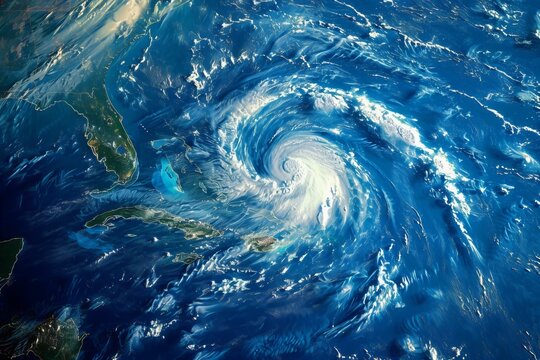As the Atlantic hurricane season progresses, the possibility of a new storm forming—like the future Hurricane Helene—has many coastal communities on alert. Understanding the factors that contribute to hurricane development can help us prepare for what may lie ahead. In this post, we’ll explore the conditions that could lead to the formation of the future Hurricane Helene and what communities should keep in mind.

Current Weather Conditions
Meteorologists monitor various environmental factors to predict storm formation. As of now, we’re observing:
- Warm Ocean Waters: Hurricanes thrive in warm sea surface temperatures, typically above 26.5°C (about 80°F). If ocean temperatures remain high, they could provide the energy needed for storm development.
- Low Wind Shear: Hurricanes require low wind shear—a difference in wind speed and direction at different altitudes—to grow. If current conditions remain stable, this could support a storm’s intensification.
- Moisture in the Atmosphere: Ample moisture in the atmosphere can enhance a storm’s potential. Meteorologists look for tropical waves that may bring this necessary humidity.
What to Expect if Helene Forms
If Hurricane Helene does develop, it could bring several impacts:
- Heavy Rainfall: Expect significant rainfall, which can lead to flooding, especially in low-lying areas.
- Strong Winds: Depending on the storm’s intensity, coastal areas may experience high winds, leading to power outages and property damage.
- Storm Surge: Areas near the coast could be at risk for storm surge, which poses a threat to infrastructure and safety.
Preparing for the Potential Storm
Communities should take proactive steps to prepare for the possibility of Hurricane Helene forming:
- Stay Informed: Keep an eye on updates from the National Hurricane Center and local meteorologists. Real-time information is crucial for making informed decisions.
- Create an Emergency Plan: Ensure that families have a plan in place, including evacuation routes and communication strategies.
- Assemble an Emergency Kit: Stock up on essentials such as water, non-perishable food, medications, and first-aid supplies.
- Secure Property: Take steps to protect your home and property, such as securing outdoor items and reinforcing windows.
Conclusion
While the potential formation of Hurricane Helene is still uncertain, being prepared is essential. By understanding the conditions that foster hurricane development and taking proactive measures, communities can better safeguard themselves against the impacts of tropical storms.
Stay alert, stay safe, and let’s work together to face the challenges that may come our way this hurricane season.